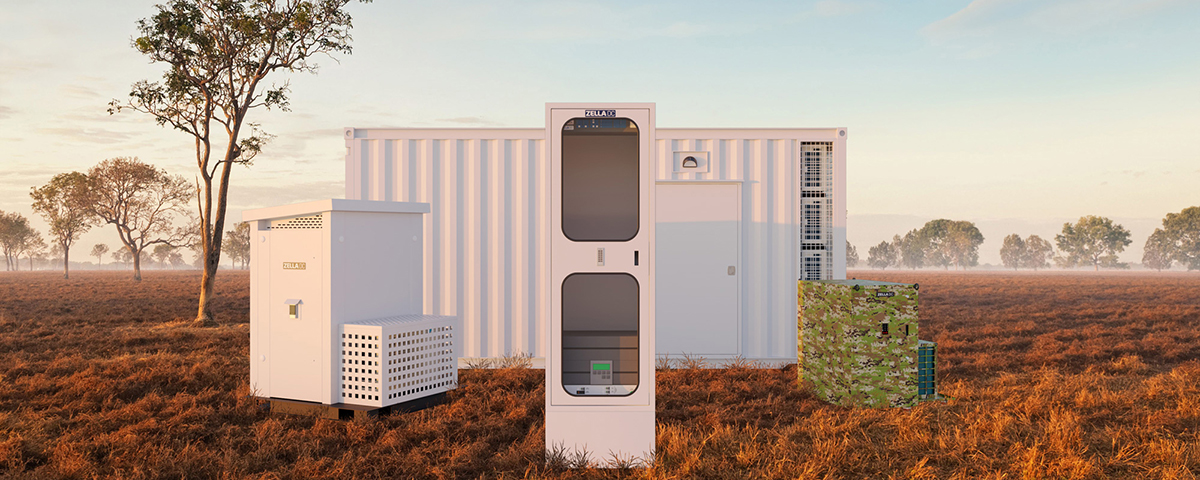The value of data in the modern world cannot be overstated. As businesses generate and rely on vast amounts of data, the need for secure, efficient, and scalable data storage solutions has never been greater. Traditional data centres have long been the backbone of data storage, but as technology evolves, so too must our approach to data security and management. Enter micro data centres: compact, versatile, and incredibly secure. In this blog, I’ll delve into why micro data centres offer superior security compared to their traditional counterparts.
Physical security: built-in safeguards
One of the primary advantages of micro data centres is their robust physical security. Unlike large, sprawling traditional data centres that are often housed in expansive facilities, micro data centres are compact and can be strategically placed in secure locations. This inherently reduces the risk of physical breaches. Here are some key features that enhance their physical security:
- Vandal-proof and waterproof construction: Micro data centres like the Zella Pro or the Zella Outback are designed with durability in mind. Their construction is vandal-proof, protecting against physical attacks, and waterproof, ensuring that data remains safe even in adverse weather conditions.
- Access control systems: Advanced access control systems, including keypad/card access and IP-based biometric systems, ensure that only authorised personnel can access the data centre. The inclusion of proximity card readers and maglocks on doors further fortifies this security.
- Strategic placement: The compact size of micro data centres allows for flexible placement options, including indoor and outdoor locations that can be more easily monitored and secured. This flexibility means they can be positioned in less conspicuous areas, reducing the likelihood of targeted physical attacks.
Cyber security: advanced protections
In the realm of cyber security, micro data centres offer several distinct advantages. The decentralised nature of micro data centres helps to mitigate risks associated with large-scale cyber-attacks. Here’s how they enhance cyber security:
- Encryption and robust password policies: Data stored in micro data centres is protected by state-of-the-art encryption techniques. Additionally, robust password policies ensure that access to the system is tightly controlled and monitored.
- Firewalls and security certificates: Micro data centres are equipped with advanced firewalls and security certificates that provide an additional layer of protection against cyber threats. These firewalls monitor and control incoming and outgoing network traffic based on predetermined security rules, ensuring only legitimate traffic is allowed.
- Defense in depth strategies: Implementing multiple layers of security measures, micro data centres adopt a defense-in-depth strategy. This approach ensures that even if one layer of security is breached, additional layers will continue to protect the data.
- Regular updates and patching: Micro data centres benefit from regular software updates and security patches, ensuring they are always protected against the latest threats. This proactive approach to cyber security helps to close vulnerabilities before they can be exploited.
Decentralisation: reducing risk
One of the most compelling arguments for the superior security of micro data centres is decentralisation. By distributing data across multiple micro data centres, businesses can significantly reduce the risk of a single point of failure. Here’s why this is important:
- Mitigation of large-scale attacks: Traditional data centres, with their centralised approach, are attractive targets for cybercriminals. A successful attack on a centralised data centre can result in significant data loss and downtime. Micro data centres, on the other hand, distribute data across multiple locations, making it much harder for attackers to cause widespread damage.
- Enhanced redundancy: Decentralisation enhances redundancy. In the event of a failure at one micro data centre, other centres can seamlessly take over, ensuring continuity of service and minimising downtime.
- Improved disaster recovery: Micro data centres facilitate better disaster recovery plans. Data can be backed up and replicated across various locations, ensuring that in the event of a natural disaster or other catastrophic events, data remains accessible and secure.
Environmental and operational security
Beyond physical and cyber security, micro data centres also offer enhanced environmental and operational security:
- Environmental controls: Micro data centres are equipped with advanced environmental control systems that maintain optimal conditions for data storage. These controls include temperature and humidity regulation, which are crucial for preventing hardware failures and ensuring the longevity of the equipment.
- Power redundancy: Micro data centres can be connected to multiple power sources, including the main grid, generators, and alternative energy sources such as wind or solar panels. This ensures a continuous power supply, further enhancing their reliability and security.
- Remote monitoring and management: The ability to remotely monitor and manage micro data centres is another significant advantage. Real-time monitoring allows for the quick identification and resolution of potential security issues, ensuring that data remains secure at all times.
Conclusion
As the demand for secure, scalable, and efficient data storage solutions grows, micro data centres are emerging as a superior alternative to traditional data centres. Their compact size, advanced physical and cyber security features, and decentralised nature make them an ideal choice for businesses looking to enhance their data security.
At Zella DC, we are committed to providing cutting-edge micro data centre solutions that meet the highest standards of security and reliability. Our range of indoor and outdoor micro data centres, equipped with robust physical protection, advanced cyber security measures, and flexible power options, exemplifies the many benefits of micro data centres.
In a world where data is more valuable than ever, ensuring its security is paramount. Micro data centres offer a secure, efficient, and scalable solution for businesses of all sizes. As we continue to innovate and improve our offerings, we remain dedicated to helping our customers protect their most valuable asset: their data.
Learn more about the security features of our products range or get in touch to learn how micro data centres can keep your data and assets safe from physical attacks and cyber threats.






